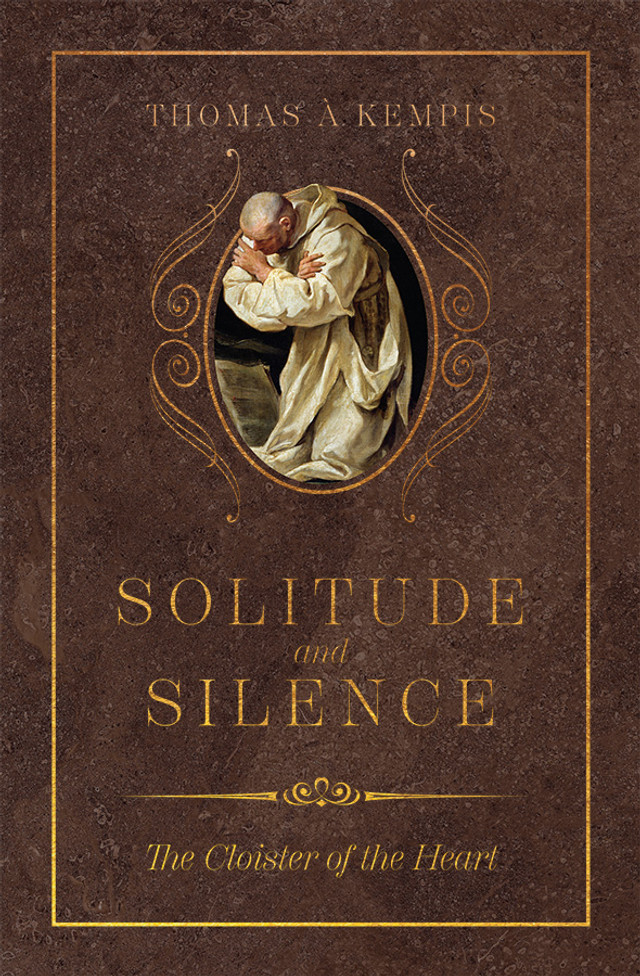Solitude and silence are two pillars of monastic life that most lay people consider too difficult, confusing, or irrelevant for their own vocation. Thomas à Kempis helps us understand that all the faithful are called to these holy practices in a unique way. This Advent, take the example of King David.
Silence: The Protector and Guardian of Piety
It is not sufficient, my friend, that you learn to esteem and enjoy solitude, unless you also learn to love its companion, silence. For silence serves as a protector and guardian of piety. Through the inability to refrain from conversation at certain times, innocence of heart can easily be sullied, and our holy intentions can be undermined.
The Example of Silence in the Prophet David
It was for this reason that it is written of holy David, who came to contemplate and to proclaim so many celestial mysteries, that “Chusi was the friend of David.” Now this name, Chusi, means “silence” in the Hebrew language. This close friendship between David and silence is reflected in many verses of his psalms. For example, he writes, “I said, I shall guard my ways, lest I should stumble through my tongue.” And a little later he writes, “I was mute and humble, and I kept silent even from good words.” In another instance, he implores the Lord to grant him control over his tongue, saying, “Place, O Lord, a guard over my mouth, and set a secure gate at my lips.”
David was such a great and wise man that he was deeply loved by the people and many nations came to be subject to his rule. And he loved silence and placed a metaphoric guard over his lips, and humbly prayed to the Lord to grant him restraint over his speech lest he should be overcome by weakness or flippancy and let ill-chosen or imprudent words escape from his mouth.
Where, may one ask, did that ancient king and prophet learn this key principle of religious life? How did he come to know this cornerstone of the Christian monastic charism? Certainly, it was only the grace of the Holy Spirit which instructed him in the value of silence and the wisdom of its careful cultivation. If this same Holy Spirit is truly with us today, we also shall learn to love silence as a guardian of virtue and seedbed of wisdom, just as it was esteemed by the holy patriarchs and prophets of old.
The Recommendation of Silence by the Saints and Founders of Religious Orders
Virtually all the founders of the various orders of monastic and apostolic life have commended silence strongly, and all the saints have both exemplified and taught this practice. There are many—such as monks, nuns, hermits, and members of religious orders—who are required to observe silence for certain times each day as part of their daily conduct of life. But even those who are not canonically bound to such an observance will find that it is a wonderful practice to adopt. It is assuredly the source of great merit in the sight of God to commit oneself to refraining from conversation and speech at certain times each day.
And not only will it promote virtue, moderation, and self-control within yourself, but it will also serve as an edifying example and positive influence on others when they see you adopt (of your own free will) certain aspects of the stricture of religious or monastic life.
The Virtues of Silence
If you are diligent in the practice of silence at certain times, you will discover a multitude of virtues hiding within this simple act of self-restraint. For by silence, you will retain humility and will adorn yourself with modesty. For keeping silence implies deliberately refraining from making a display of one’s own real or imagined merits, cleverness, and insights before others. It is a way of showing respect and obedience towards others by being more ready to listen to them and to defer their judgment. Silence is also an effective way of promoting peace and harmony within a community.
You shall find that silence will serve as an invaluable protector and guardian for you if you keep the strictest silence at all times when this is required or expected of you. And even when it is permissible and acceptable to speak freely, it is useful to say only what is necessary or useful to others in some way rather than talking merely for self-gratification. Whenever you find yourself saying something purely through flippancy or boredom or carelessness, endeavor to correct yourself at once. And take note of the occasion and direction of your imprudent or thoughtless speech so that you may avoid similar instances in the future.
ooo
This article is taken from a chapter in Solitude and Silence by Thomas à Kempis which is available from TAN Books.









